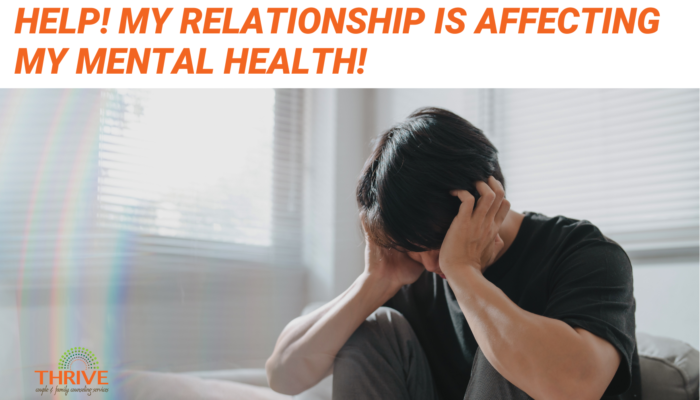Suicide is such a sad and scary word to hear. Whether you’ve personally experienced suicidality, or you know someone who has experienced suicidality, or you just know about statistics of suicide, it can feel like such an incredibly overwhelming and confusing concept to understand.
As the topic of mental health becomes more normalized in society, the topic of suicide is being researched and talked about more and more. There are many popular television shows and movies that explore the concept of suicide, as well. With all of this talk and publicity, it can be difficult to discern which information about suicide is accurate and what has been misrepresented.
Here are some recent statistics on suicide outlined by an organization called “Do Something”:
- Suicide is the tenth leading cause of death in the United States
- It’s estimated that half of all people in the country will know someone who has died by suicide in their lifetime
- Approximately 10.5% of young adults in the United States report having serious suicidal thoughts
- Suicide is the second leading cause of death for people under 34 in the United States
If one thing is certain, it’s that suicide is a serious problem.
So how does someone become suicidal? People who are most at risk for suicidality are people who are have experienced life stressors with an inability to deal with them. Suicide rates are also highest among groups who experience discrimination or are in low- and middle-income countries.
Basically, suicidal ideation can occur when a person doesn’t feel capable of coping with an overwhelming situation (such as abuse, financial problems, relationship stress, grief, etc.). People with a family history of mental health issues, people who feel secluded or lonely, and people without a lot of coping skills for difficult emotions are especially prone to suicidal thoughts. In most cases, someone who is considering suicide views it as the only option to get out of (or avoid) a difficult situation or emotion.
It is also important to note the difference between someone with suicidal ideation and someone who is actively suicidal.
If someone is experiencing suicidal ideation, it means that they are having thoughts of ending their life without any plans to carry it out. On the other hand, if someone is actively suicidal, they have made a specific plan to end their life and plan to carry it out.
Most people who experience suicidal ideation do not actually get to the point of being actively suicidal. However, both experiences can be very frightening – for both the person who is experiencing these thoughts and the people who love them.
The good news is that suicides are preventable.
What To Do If You Are Experiencing Suicidal Thoughts
It is so difficult to realize that suicidal thoughts have become a coping skill. You might feel like you’ve lost control over your thoughts, which can increase feelings of being overwhelmed, stressed, and alone.
One of the first things to do if you are experiencing suicidal thoughts is to tell someone you trust. This can be anyone from a partner, to a friend, to a family member – just tell someone you trust. If you can’t think of anyone who you trust to open up to, a therapist can be a great resource. Local or national suicidal hotlines are a valuable resource as well. Recognize that it can feel scary or embarrassing to let someone know what’s going on. Despite these initial feelings, many people find that talking about their suicidal thoughts releases a lot of pressure. It’s the first step to finding a way to cope and diminish suicidality.
When you find someone to talk to about your suicidal thoughts, tell that person exactly what you are telling yourself. Phrases like “I can’t take it anymore” or “I’m done” can seem vague to someone who doesn’t know how serious things are for you. Explain the specific thoughts that you have and make sure this person knows you are thinking about suicide. If it seems too hard or overwhelming to talk about right now, try writing it down in a note that you can hand to someone.
Make a plan to keep yourself safe.
If you are actively suicidal, go to a hospital or an inpatient mental health center. Find someone who can drive you or call 911. If you are not actively suicidal, do what you can to eliminate the risk of becoming actively suicidal. Make an appointment with a therapist to start learning coping skills for these tough emotions. Remove anything from your house that you could use to hurt yourself. Ask a trusted person to check in with you. Avoid drugs or alcohol. Avoid being alone as much as possible.
Instead, do activities that make you feel good. Spend time in the sun, watch something that makes you smile, spend time with people. It can also be helpful to make personal goals. Take care of yourself by getting sleep, eating well, and exercising. Think of things you would like to accomplish, like traveling, reading a book, starting a new hobby, or seeing your kids grow up.
Whatever your goals are, write them down and remember that you have things to live for.
Remember that no matter what it is that you are experiencing, there are resources out there to help you through it. There’s hope. You can learn to deal with stress and emotions in a healthy way.
What To Do If Someone You Think That Love is Experiencing Suicidal Thoughts
One of the hardest parts of being in this role is bringing up the topic of suicide. For many people, it is very scary to ask if someone is suicidal. They may wonder if it is “too taboo” to bring up suicide to check in with someone. Some of the warning signs of suicide are:
- Talking about suicide
- Social withdrawal
- Noticeable changes in the person’s normal daily routine
- Getting affairs in order/Saying goodbyes
- Engaging in risky behavior
A good way to bring up the topic of suicide with someone is sharing the symptoms that you’ve noticed. Do your best to express your concern in a caring, non-judgmental way. Emphasize your willingness to help. If the person you are worried about denies any suicidal ideations but you are still skeptical, it can be a good idea to just keep an eye out and spend time with that person.
It’s a big deal just for someone with suicidal thoughts to know someone cares.
Or maybe you’re in a situation where someone you love has come to you and told you they are experiencing suicidal thoughts. Either way, you probably feel an immense amount of pressure to do or say the right thing. You yourself might be experiencing some overwhelming worry, confusion, and sadness.
One of the first things to do is to determine if your loved one is actively suicidal or having suicidal ideations. If someone is actively suicidal, they will need to be admitted to a hospital or inpatient mental health center. Calling 911 or a suicide hotline are good ways to get help or find a good location.
On the other hand, if your loved one is experiencing suicidal ideations and does not plan to end their life, let them know how grateful you are that they have shared this vulnerable information with you. Let them know that you love them and want to help. One of the first steps to take is to make a safety plan with them. See if you can help them find a therapist to start seeing on a regular basis, check in with them frequently, and take out any potentially harmful/deadly things from the house (i.e. guns, medications, knives).
Finally, be sure to practice your own self-care.
It can be very tempting to pour all of your own attention, energy, and emotions into this person you love and are worried about. However, you will be unable to help them if you start to feel more and more depleted. Increase your own support network, get sleep and exercise, don’t skip meals, and be aware of your own needs and emotions. If you or someone you love is thinking about suicide, please reach out for help. The National Suicide Prevention Lifeline is 1-800-273-8255, and it’s available 24/7.
If you need support, our therapists can help. Schedule an appointment with our Greenwood Village Counselors at 303-513-8975, X1, or schedule online today:




